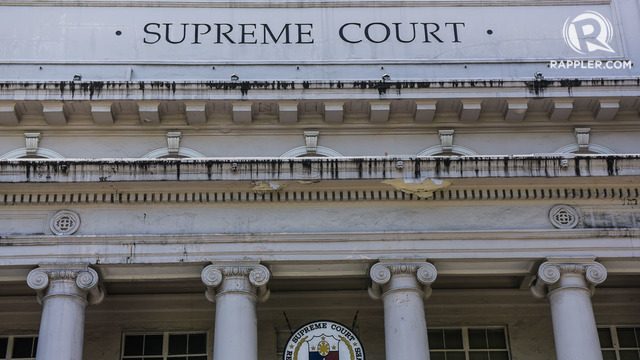SUMMARY
This is AI generated summarization, which may have errors. For context, always refer to the full article.

The Supreme Court (SC) barred the early release of two convicted drug traffickers, citing as basis, heinous crimes not being covered by the controversial Good Conduct Time Allowance (GCTA) law.
The SC 3rd Division said Raymundo Reyes and Vincent Evangelista, both found guilty of selling shabu in 2001, cannot benefit from the GCTA law as its implementing rules and regulations (IRR) “have the force of the law and are entitled to great respect.”
The court cited the 2019 IRR issued by the Department of Justice (DOJ), which does not include heinous crime convicts as GCTA beneficiaries.
Distribution of illegal drugs is among the heinous crimes enumerated in Republic Act No. 7659, the death penalty law signed in 1993 and repealed in 2006. The DOJ uses this definition. (READ: What are heinous crimes?)
With this decision, the SC 3rd Division is not yet ruling on the constitutionality of the IRR, which is still pending before the en banc. It is simply saying that without a decision on the legality of the IRR, the rules will be followed.
“Administrative issuances partake of the nature of a statute and have in their favor a presumption of legality,” the SC said in a 10-page resolution penned by Associate Justice Rodil Zalameda.
“As such, courts cannot ignore administrative issuances especially when, as in this case, its validity was not put in issue.”
The new IRR was made in response to the controversy involving the botched early release of convicted murderer-rapist Antonio Sanchez.
“Unless an administrative order is declared invalid, courts have no option but to apply the same,” the SC said.
In 2019, a group of New Bilibid Prison inmates challenged the new IRR before the SC, arguing that excluding heinous crimes is “invalid..for going beyond the law and for being tantamount to executive legislation.”
The SC en banc has yet to release a decision on the petition. – Rappler.com
Add a comment
How does this make you feel?




![[Just Saying] Diminished impact of SC Trillanes decision and Trillanes’ remedy](https://www.rappler.com/tachyon/2024/04/Diminished-impact-of-SC-Trillanes-decision-and-remedy.jpg?resize=257%2C257&crop=273px%2C0px%2C720px%2C720px)
There are no comments yet. Add your comment to start the conversation.